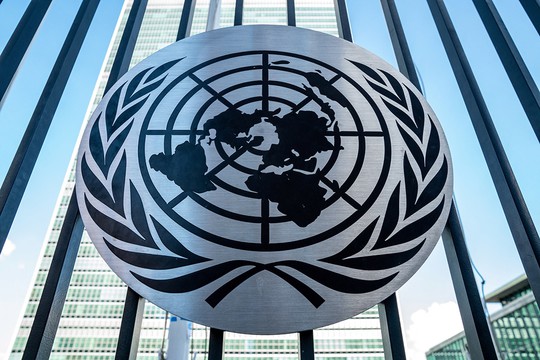The war in Ukraine did not start on 24 February 2022, but already in February 2014. The civilian population of the Donbas has endured continued shelling from Ukrainian forces since 2014, notwithstanding the Minsk Agreements. These attacks on Lugansk and Donetsk significantly increased in January-February 2022, as reported by the OSCE Special Monitoring Mission to Ukraine, stresses Alfred de Zayas, a law professor at the Geneva School of Diplomacy and served as a UN Independent Expert on International Order 2012-18.
Like all wars, this war is a tragedy for all concerned, for the continued validity of international law and the primacy of the UN Charter.
Already NATO’s military campaigns in Yugoslavia, Afghanistan and Iraq in the 1990’s and early 2000’s sorely tried the authority and credibility of the United Nations as an Organization. These military campaigns conducted outside Chapter VII of the UN Charter rendered the United Nations nearly irrelevant, because the Organization was unable to prevent the illegal use of force or mediate peace.
The so-called “coalition of the willing” perpetrated naked aggression against the people of Iraq in 2003 in a series of criminal acts that constituted a revolt against the UN Charter and international law.
Such military campaigns carried out against the letter and spirit of the UN Charter and hitherto not subject to prosecution by the International Criminal Court have significantly weakened the force of international law and resulted in the emergence of “precedents of permissibility”.
In his article in the ‘Economist’ on 19 March 2022, Professor John Mearsheimer of the University of Chicago explains why the West bears responsibility for the Ukrainian crisis.
Already in 2015 Mearsheimer had signalled the importance of keeping oral agreements, as those given by the United States to Mikhail Gorbachev in 1989-91, to the effect that NATO would not expand eastward. In subsequent lectures Mearsheimer has explained that, whether or not the West considers NATO’s expansion a provocation, what is crucial is how NATO expansion is perceived by those who feel threatened by it. In this context we must remember that article 2(4) of the UN Charter prohibits not only ‘the use of force’ but also ‘the threat of the use of force’. Promising to expand NATO to the very borders of Russia and the massive weaponization of Ukraine certainly constitute such ‘a threat’, especially bearing in mind the aggressive campaigns by NATO members in Yugoslavia, Afghanistan, Iraq, Syria and Lybia.
Whether Russian fears are objectively justified or not (I think they are) is not the pertinent question, since their apprehension is a factum. What is crucial is the obligation of all UN member states to settle their differences by peaceful means, i.e. to negotiate in good faith. That is precisely what the Minsk agreements were all about. Yet, Ukraine violated the Minsk agreements systematically. Russia did make a credible effort to negotiate since 2014 in the context of the OSCE and the Normandy Format. German Chancellor Angela Merkel and French President François Hollande recently confirmed that the Minsk agreements were intended to give Ukraine time to prepare for war. Thus, essentially, the West entered the agreements in bad faith by deliberately deceiving the Donbas Russians.
In a very real sense, Putin was taken for a ride at Minsk and during the eight years of Normandy Format discussions. Such behavior reflects a “culture of cheating” and violates well-established principles of international relations amounting to perfidy, in contravention of the UN Charter and general principles of law.
Notwithstanding, In December 2021 the Russians put forward two peaceful proposals in the hope of averting military confrontation. Although the treaty proposals were moderate and pragmatic, the US and NATO refused to negotiate pursuant to article 2(3) of the Charter and arrogantly rejected them. If this was not a provocation in contravention of article 2(4) of the UN Charter, I do not know what is.
Without the Maidan putsch and the anti-Russian measures immediately taken by the putsch-regime, the Crimean and Donbass peoples would not have felt menaced and would not have insisted on their right of self-determination. A history Professor Lawrence Wittner writes that the term “annexation” in international law presupposes an ‘invasion’, ‘military occupation’ ‘contrary to the will of the people’. That is not what happened in Crimea in March 2014!
There was a referendum in Crimea to which the UN and OSCE were invited – and never came. Then there was an unilateral Declaration of independence by the legitimate Crimean Parliamen, only then was there an official request to be re-incorporated into Russia, a request that went through the due process mill, being first approved by the Duma, then by the Constitutional Court of Russia, and only then signed by Putin.
A referendum confirmed the will of the Crimeans to be part of Russia, not Ukraine, to which they had been artificially attached by decision of Nikita Khruschev, a Ukrainian himself. There are no historical or ethnic reasons justifying Crimea’s attachment to the Ukraine.
Many international lawyers agree that Crimea exercised its right of self-determination and was not “annexed” by Russia.
Wittner poses an important question: “What are we to think about the value of international law”? As a professor of international law and a believer in the UN Charter, I ask the same question.
The UN Organization must be truly committed to peace, and not only sometimes. It must not continue to apply international law à la carte, or it will lose all its authority and credibility.
read more in our Telegram-channel https://t.me/The_International_Affairs

 12:08 20.02.2023 •
12:08 20.02.2023 •























